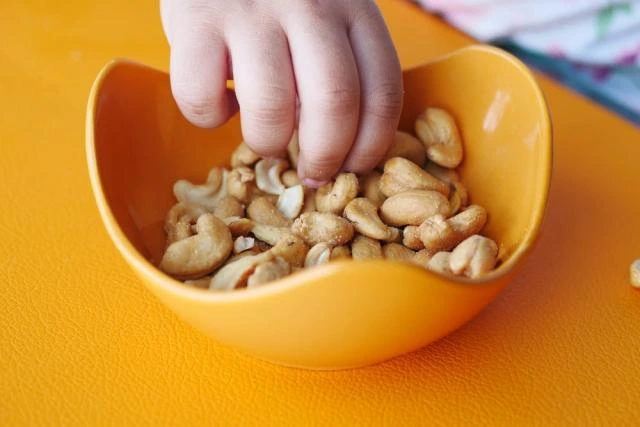
Peanut Allergy Treatment Palforzia® Indication Expanded by European Commission for Toddlers
Stallergenes Greer, a biopharmaceutical company specializing in allergen immunotherapy (AIT), has announced that the European Commission (EC) has granted approval for the extension of Palforzia® (defatted powder of Arachis hypogaea L., semen) to treat toddlers (ages 1 through 3) with a confirmed peanut allergy. This marketing authorization extends across all 27 European Union (EU) member states, as well as Iceland, Liechtenstein, and Norway.
The approval follows a similar one by the U.S. Food and Drug Administration (FDA) in July 2024. Palforzia® is now the first and only oral immunotherapy approved by both the European Medicines Agency (EMA) and FDA for toddlers with peanut allergies.
Importance of Early Intervention for Peanut Allergy
This allergy is one of the most common and potentially severe food allergies. Early intervention is key to reducing the risk of accidental exposure and improving long-term health outcomes. Dr. Katharina Blümchen, Professor at the University of Medicine of Frankfurt, emphasized the significance of the approval, noting that it represents a meaningful step forward in managing allergies during a crucial period of a child’s development. “The approval of Palforzia for toddlers is a groundbreaking advancement in managing peanut allergies in young children,” Dr. Blümchen said.
Michele Antonelli, CEO of Stallergenes Greer, also highlighted the importance of this approval in alleviating the burden of peanut allergies. “Peanut allergies pose risks of severe reactions and can have significant psychological and social consequences for both the child and their family. The availability of Palforzia® for young children is a critical milestone in addressing this urgent healthcare need.”

How Palforzia® Works
Palforzia® is designed to help desensitize the immune system by gradually increasing the body’s ability to tolerate small amounts of peanut protein. The therapy involves a controlled and supervised approach, including dose escalation, up-dosing, and maintenance. By introducing the treatment at an earlier age, Palforzia® offers children and their families a way to reduce the risk of severe allergic reactions from accidental peanut exposure, which can be life-threatening.
This extension of the indication for toddlers is based on positive results from the Phase 3 POSEIDON study. This study, published in the New England Journal of Medicine Evidence in 2023, assessed the safety and efficacy of Palforzia® in peanut-allergic children aged 1 to 3 years. The study met all primary and secondary efficacy endpoints and showed a favorable safety profile, paving the way for this approval.
The POSEIDON Study: Key Findings
The POSEIDON (Peanut Oral Immunotherapy Study of Early Intervention for Desensitization) trial, a double-blind, placebo-controlled Phase 3 study, involved participants from both North America and Europe. The study was designed to evaluate the safety and effectiveness of Palforzia® for children aged 1 to 3 with peanut allergies. The trial enrolled patients based on several criteria, including a documented peanut allergy diagnosis and positive skin prick test or elevated peanut-specific IgE levels.
During the study, participants underwent a dose-escalation phase over 22 weeks, gradually increasing to a daily dose of 300 mg of Palforzia® or placebo. This was followed by a maintenance phase of six months, with an exit double-blind food challenge to assess the therapy’s effectiveness. The results demonstrated that Palforzia® successfully increased the patients’ tolerance to peanuts, providing evidence of its efficacy in early intervention for peanut allergy.
Palforzia®: Approved in Multiple Regions
Palforzia® is approved by the European Medicines Agency (EMA) for patients aged 1 to 17 years with a confirmed the allergy. It is also authorized by the Medicines and Healthcare products Regulatory Agency (MHRA) in the UK and Swissmedic in Switzerland for patients aged 4 to 17 years. In the U.S., the FDA has approved Palforzia® for children and adolescents aged 1 to 17 for the mitigation of allergic reactions, including anaphylaxis, from accidental peanut exposure. Palforzia® is always used in conjunction with a peanut-avoidant diet.
The approval of Palforzia® in young children offers a significant advancement in the field of allergen immunotherapy, providing a much-needed treatment option for peanut allergies, one of the most common and dangerous food allergies worldwide.
About Stallergenes Greer
Stallergenes Greer International AG is a global leader in the diagnosis and treatment of respiratory, food, and venom allergies. Headquartered in Baar, Switzerland, the company specializes in allergen immunotherapy products, offering both sublingual and subcutaneous treatments for a range of allergic conditions. With a focus on innovative solutions for allergy management, Stallergenes Greer is committed to improving the quality of life for patients and their families. The company is also the parent of Greer Laboratories, Inc. (USA) and Stallergenes SAS (France).




